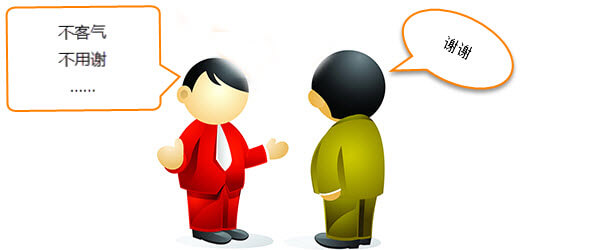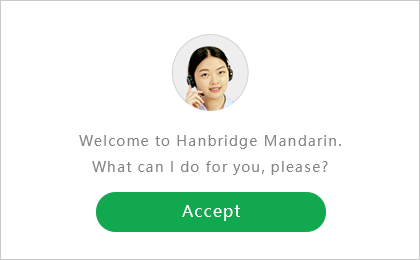7 Ways to Say You're Welcome in Chinese
Posted by Julia Song 53275

When Chinese say “thank you” to you, what do you do, how do you say you’re welcome in Chinese? You were surely taught that you’re welcome in Chinese is 不客气(bú kè qì), in fact, there are more ways to response thank you in Chinese!
Way 1: 不客气 (bú kè qì)
不客气 is the most common and formal way to say you are welcome, sound like you deserve the thanks.
It usually used to these kinds of people: To those you don’t know, for example, the elderly man you offer your seat to on the bus. Unfamiliar people, like your leader. The people you serve in business.
Way 2: 不用谢(bú yòng xiè)
不用 is no, 谢 is thank you, so 不用谢 means that’s all right. This expression is similar with 不客气, means you have accepted the thanks, often used to close friends.
Way 3: 别客气,我很荣幸。(bú kè qì ,wǒ hěn róng xìng)
This phrase translated into English is “It was my pleasure”. It is more formal than 不客气. A man who wants to show his gentleman's manners often use this phrase.
Way 4: 别和我见外(bié hé wǒ jiàn wài)
This means don't mention it. It is used to acquaintance you are very pleased to help, and appear you are very chivalrous.
Way 5: 小意思!(xiǎo yì sī)
小意思 in English is “No sweat”. Generally means you don’t need to spend a lot of effort to help others.
Way 6: 你太客气了(nǐ tài kè qì le)
Sometimes in the view of the person receiving, you help him/her a lot that he/she deeply appreciate your support, you can respond “你太客气了” which means “you are just being polite!”
Way 7: 唔使客气(ḿ shǐ kè qì)
The way of accepting someone’s thanks in Cantonese is different from Mandarin. Thank you in Cantonese is “唔该 (ḿ gāi)”, and if you want to response you’re welcome in Cantonese, you should say 唔使客气.
How do you say you’re welcome in Chinese? Tell us in the comment box below.
Similarly, there is more than one way to say thank you in Chinese. If you are interested in learning more about Chinese language, contact us to schedule a FREE 1-on-1 lesson with live Chinese teacher in a virtual classroom for you now!
Resources
- Daily Chinese
- Chinese Grammar and HSK Preparation
- Business Chinese
- Chinese for kids
- Pinyin and Chinese phonetics
- Chinese characters
- Chinese Idioms and culture
- AP Chinese
- General learning tips
- Conversational Video Course










